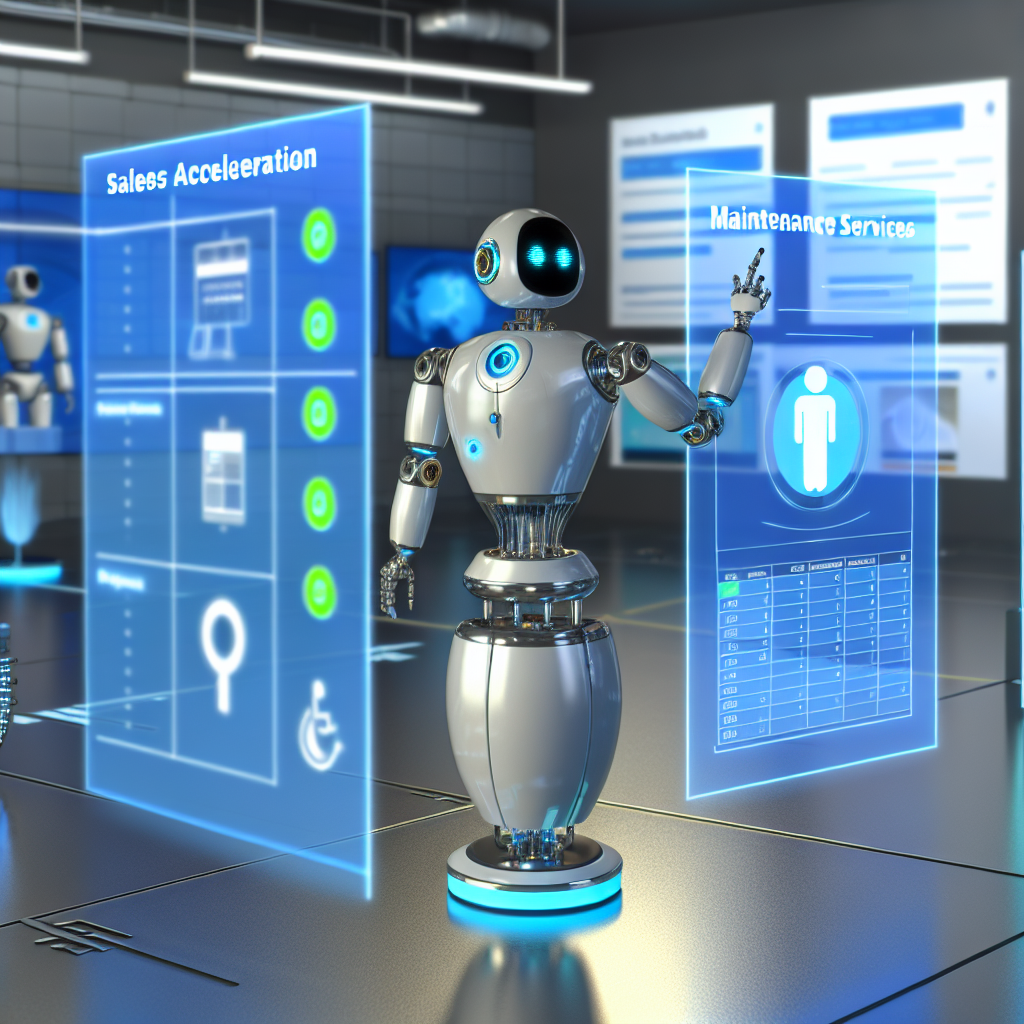Introduction
In today’s fast-paced business environment, the ability to streamline operations while maintaining superior customer service is paramount, particularly in the maintenance services industry. AI-driven sales acceleration tools offer a revolutionary approach to enhancing efficiency and boosting sales performance. These tools can handle various tasks, from appointment scheduling to customer support, all while providing timely service updates to clients. This article will explore the best use cases for AI-driven sales acceleration in maintenance services, demonstrating how integrating artificial intelligence can lead to improved productivity and customer satisfaction.
Understanding AI-Driven Sales Acceleration
AI-driven sales acceleration refers to the application of artificial intelligence technology to enhance the sales process. In maintenance services, this can manifest in numerous ways, primarily focusing on increasing efficiency, improving customer interaction, and automating repetitive tasks. By harnessing machine learning algorithms and natural language processing, AI can analyze large datasets, understand customer needs, and anticipate service requirements, ultimately leading to more informed decisions and streamlined operations.
Appointment Scheduling
One of the most time-consuming tasks in maintenance service companies is appointment scheduling. Traditional methods often involve back-and-forth communications, leading to inefficiencies and frustrated customers. AI-driven appointment scheduling tools can alleviate these issues significantly. By utilizing AI algorithms, these systems can automatically schedule appointments based on the availability of both technicians and customers, reducing the time spent on manual coordination.
Moreover, AI can analyze historical data to predict busy periods and recommend optimal scheduling slots. This results in efficient allocation of resources and reduced downtime for technicians. The integration of chatbots further enhances this aspect, allowing customers to schedule appointments through simple interactions, regardless of time or day. This not only increases customer satisfaction but also improves overall operational efficiency by ensuring that technicians are utilized effectively.
Service Updates
Timely service updates are crucial in maintaining customer trust and satisfaction. Customers want to be kept in the loop regarding their service requests, especially in maintenance sectors where unexpected issues can arise. AI-driven solutions can automate service updates, providing real-time information to customers. For instance, predictive analytics can aid in communicating expected arrival times for technicians, status updates on ongoing services, and alerts for maintenance reminders.
By leveraging AI, service companies can proactively manage customer expectations. Automated notifications through SMS or email can inform clients about updates without requiring manual intervention. This helps in building a more transparent relationship between service providers and their clients, reinforcing trust and reliability. Additionally, timely updates can reduce the number of customer inquiries, freeing up customer support representatives to focus on more complex issues.
Customer Support
The role of customer support in maintenance services cannot be overstated. Effective customer service is what often sets companies apart in a competitive market. AI-powered customer support solutions, such as chatbots and virtual assistants, can provide 24/7 assistance. This ensures that customer inquiries are addressed at any time, leading to higher levels of satisfaction.
Chatbots can handle a variety of tasks, including answering frequently asked questions, troubleshooting common issues, and even guiding customers through the maintenance request process. By using natural language processing, these tools can understand customer intent and provide accurate and relevant responses. For example, a customer experiencing an air conditioning issue could engage with a chatbot that asks questions to diagnose the problem before scheduling a technician for an on-site visit.
Lead Generation and Qualification
Another significant use case for AI-driven sales acceleration in maintenance services is lead generation and qualification. Identifying potential customers and determining their readiness to purchase is crucial for sustaining growth. AI systems can analyze data from various sources, including social media, website interactions, and past customer behavior, to identify high-potential leads.
Moreover, AI-driven tools can assist in scoring these leads based on predefined criteria, such as engagement level and purchase history. This means sales teams can focus their efforts on the most promising leads rather than potentially fruitless outreach, thereby increasing overall conversion rates. By automating the lead qualification process, sales representatives are empowered to engage with customers who are most likely to benefit from their services, resulting in higher efficiency and productivity.
Performance Analysis and Reporting
Analyzing sales performance is central to any business’s success, and maintenance services are no exception. AI-driven analytics can provide deep insights into various aspects of sales performance, from individual representatives’ effectiveness to overall trends within the organization. By leveraging predictive analytics, businesses can identify which maintenance services are most in demand, enabling them to tailor their offerings accordingly.
Furthermore, performance reports generated by AI tools can help identify areas for improvement. For example, if data shows that follow-up appointments are often delayed, this could indicate a need for improved scheduling practices or additional training for staff. By utilizing AI in performance analysis, maintenance service providers can make data-driven decisions that enhance overall operational effectiveness.
The Future of AI in Maintenance Services
As the technology continues to evolve, the potential applications of AI in maintenance services are expansive. The integration of AI with Internet of Things (IoT) devices, for instance, could lead to predictive maintenance measures, where AI analyzes data from IoT sensors to predict equipment failures before they occur. This would not only enhance service efficiency but also substantially improve customer satisfaction by preemptively addressing issues before they escalate.
Moreover, advances in AI could lead to even smarter scheduling systems, allowing integration with other operational tasks such as inventory management and technician training. As AI capabilities expand, maintenance services can leverage these innovations to remain competitive in an increasingly technology-driven landscape.
Conclusion
AI-driven sales acceleration tools present numerous opportunities for enhancing the efficiency and effectiveness of maintenance services. From automating appointment scheduling and providing timely service updates to delivering exceptional customer support and optimizing lead generation, the benefits are clear. By adopting these AI solutions, maintenance service providers can streamline operations, improve customer satisfaction, and ultimately drive sales growth. Looking into the future, it is evident that AI will continue to play a critical role in reshaping the landscape of maintenance services, making it essential for organizations to embrace these innovations to stay ahead.

